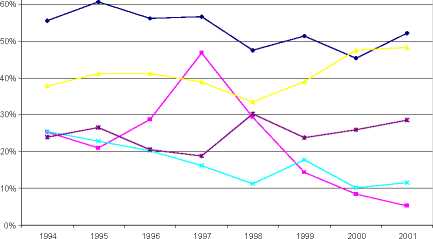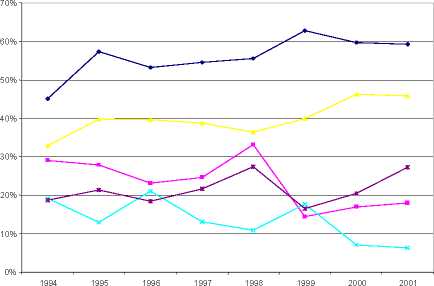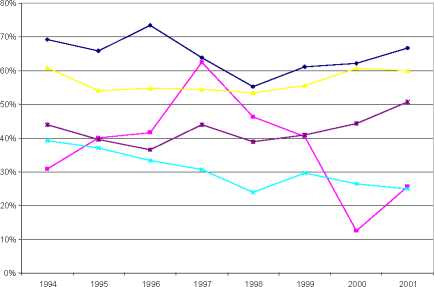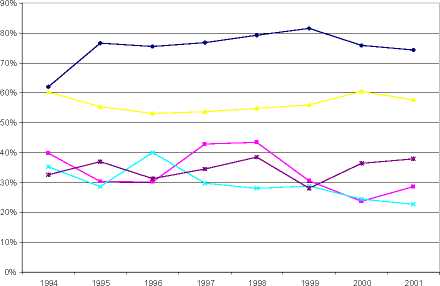Figure 4-3: Low income incidence - percentage of retired people below poverty threshold, by Type of Family
Poorest 5th- male
Poorest 5th - female
70%

-♦—Retired - alone
-■—Retired / with children
Retired /couple with no children
-*- Retired /couple with children
-■—Other

—•—Retired - alone
-■—Retired / with children
Retired /couple with no children
-■- Retired /couple with children
-■—Other
Poorest 3rd - male
Poorest 3rd - female

—♦—Retired - alone
-■—Retired / with children
Retired /couple with no children
-*- Retired /couple with children
-■—Other

►—Retired - alone
•—Retired / with children
►—Retired /couple with no
Retired /couple with chi
ren
25
More intriguing information
1. The name is absent2. Design and investigation of scalable multicast recursive protocols for wired and wireless ad hoc networks
3. Evolutionary Clustering in Indonesian Ethnic Textile Motifs
4. ‘Goodwill is not enough’
5. EDUCATIONAL ACTIVITIES IN TENNESSEE ON WATER USE AND CONTROL - AGRICULTURAL PHASES
6. The name is absent
7. The name is absent
8. Running head: CHILDREN'S ATTRIBUTIONS OF BELIEFS
9. The bank lending channel of monetary policy: identification and estimation using Portuguese micro bank data
10. The name is absent